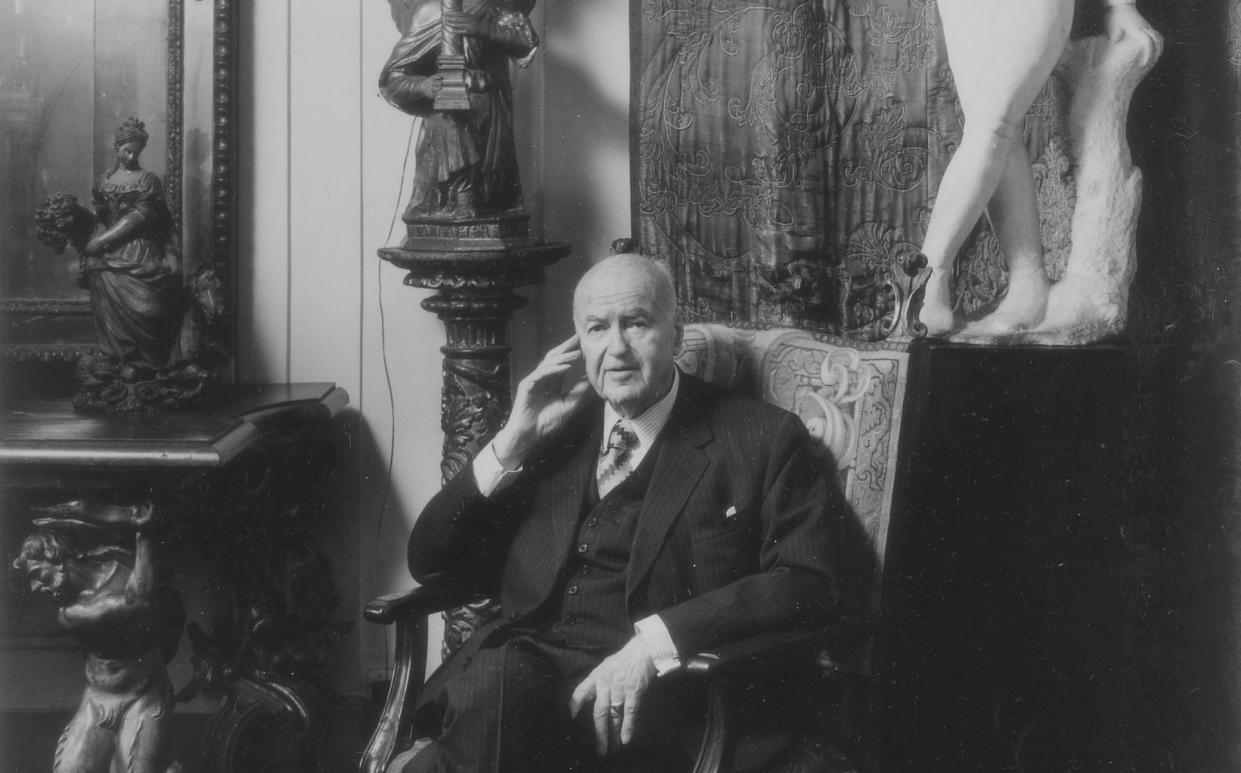Sacred Mysteries: Florence and the worst dinner party ever

Have the English missed the point of Florence? “Over tea and crumpets,” observed that sharp and readable satirist Aldous Huxley, “they talk, if they are too old for love themselves, of their lascivious juniors; but they also make sketches in watercolour and read the Little Flowers of St Francis.”
It’s enjoyable to consider that question while reading Florence has won my Heart by Mark Roberts. Published this week, it gives sketches of 100 English-speaking visitors to the city between 1750 and 1950. The author has lived there for 50 years and there his five children were born, like Florence Nightingale, though she never went again.
The title is from Samuel Rogers (1763-1855), who decided that “in Florence I should wish to live, beyond all the cities of the world”. He returned at intervals, staying at its most expensive hotel amid “perpetual bustle, and never-ending odour of soup”.
When Mark Roberts found the Uffizi closed by a strike during his first visit in 1971, it did not dampen his enthusiasm, for there were 100 churches to explore, many full of great works. Some he mentions in a list pleasing in the same way that Jan Morris’s used to be.
He came to love the angel candlestick to the right of the altar in the Baptistery; Verrocchio’s Lavabo and Donatello’s bronze pulpits at San Lorenzo; and the dog’s footprints on the tiles of Brunelleschi’s dome of Santa Maria del Fiore.
How unlike the approach of Norman Douglas (1868-1952), the author of South Wind, who, though “in some respects fastidious and patrician, was also a heavy drinker and an unrepentant paedophile”.
Anyway Douglas “had taken a vow never to enter a church (which certainly handicapped him as a writer of guidebooks)”. His rule was to accept no invitations to private houses either, as he could not then complain about the food nor leave when he was bored.
He did not care for Italian painting, his favourite term of disapprobation being Cinquecento. After 20 years he left Florence because of a scandal about a child.
The painter Thomas Patch, by contrast, arrived in Florence in 1755 hot foot from a homosexual scandal in Rome. Admiring Masaccio, he engraved 26 frescoes in the Carmelite church at Florence, which proved fortunate when they had to be restored following a disastrous fire in 1771.
Generally, the English brought their world view as luggage, like Tennyson who travelled with an emergency library of Shakespeare, Milton, Homer, Virgil, Horace, Pindar, Theocritus, Dante and Goethe.
Harold Acton, born in Florence, gave a painful account of a dinner party given by the novelist Sinclair Lewis (1885-1951), known as Red as much for his complexion as his views. Evelyn Waugh and Una Troubridge, the companion of Radclyffe Hall, author of The Well of Loneliness, were also guests. Lewis did not eat the tepid spaghetti and veal, only belching periodically. (“What is that frightful noise?” Waugh kept asking.)
The wine had been watered down by Lewis’s own companion, a fake major, in a vain attempt to stop him drinking too much. Urged to try the veal, Waugh answered simply: “It’s Friday.”
Lewis egged on the fake major to recount his war experiences. Waugh said: “I don’t want to hear them.” Lewis said, “Oh but you must. They’re absolutely hilarious. Tell Evelyn about the holy-water font that was mistaken for a urinal.”
Sometimes the English in Florence seem like survivors in a lifeboat amid alien surroundings with no meeting of minds.

 Yahoo News
Yahoo News 
